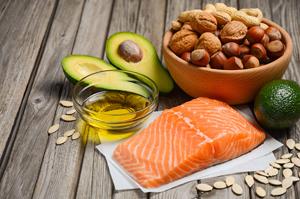Q: Is supplementing with fish oil a good alternative to medication management for ADHD?
A: Many people have been hopeful about fish oil and ADHD symptoms, but there’s no evidence that it can replace prescribed medications.
Keep reading A Fishy Idea: Omega-3 Supplements as a Replacement for Medication bit.ly/lilfishy to learn what researchers are finding out about fish oil supplements.
